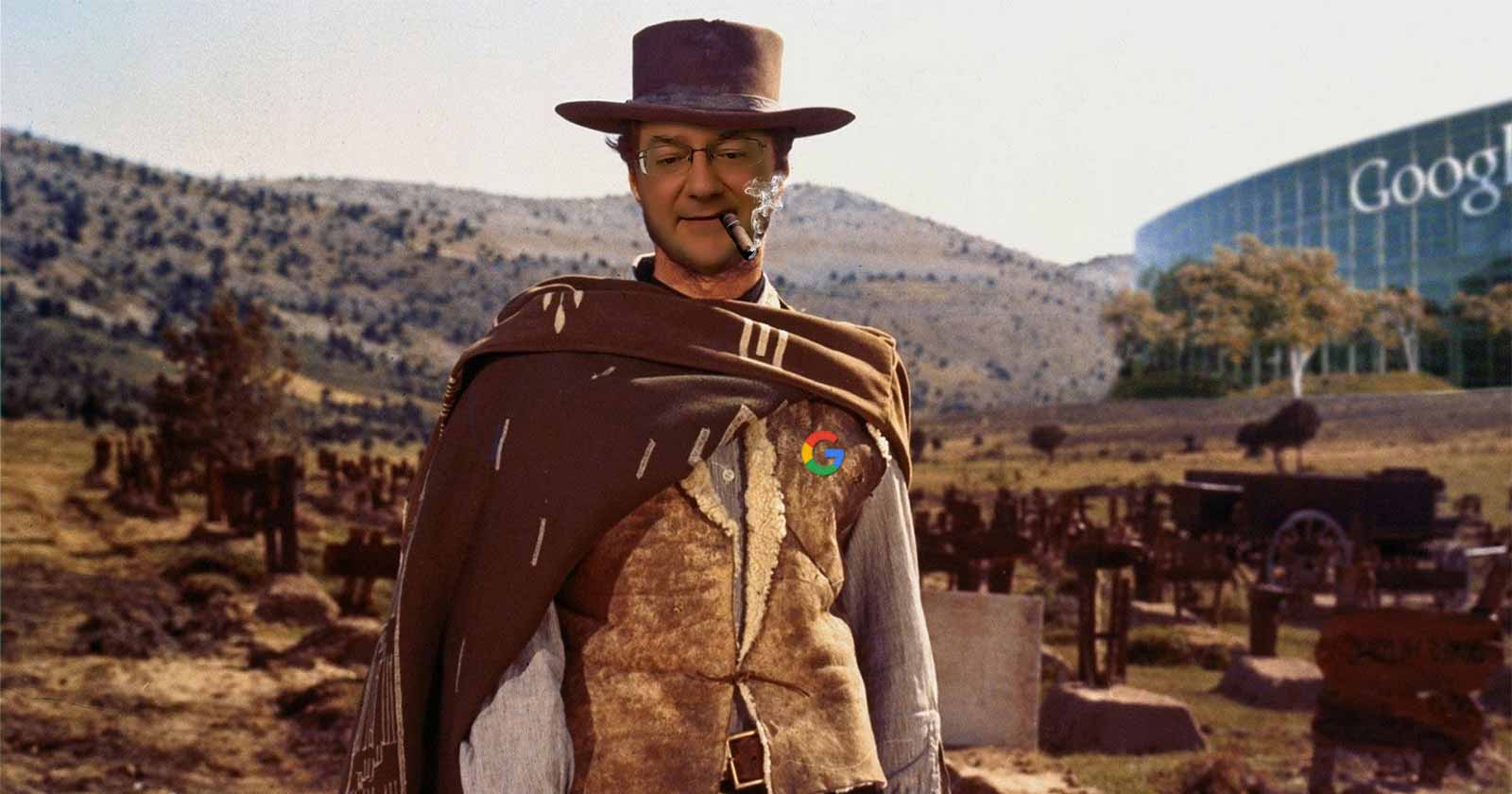We all know that we need links to rank well.
But some people are still unsure about what constitutes a good link or a bad link.
That information is critical in making smart link building decisions.
Dabble in questionable link building techniques today – even unintentionally – and you will eventually find yourself on the wrong side of a penalty, costing you traffic and sales.
That’s why it’s so important to understand exactly what kind of links have a positive impact on ranking and are acceptable according to Google’s Webmaster Guidelines.
So we’re going to delve into the good, the bad, and the ugly of links.

This post will explain which type will hurt your website, which will just waste your time by not improving ranking, and which will propel you to the top of the search results.
On a related note, it’s important to have a strategy rather than just blindly building links.
This will save you time, money, and energy while improving your results.
The Good Links
Good links tend to be earned naturally and generally aren’t scalable.
Organic link building takes a lot more time and effort, but it also means the links you do get are more valuable because they are more difficult for your competitors to replicate.
This gives you a more dominant position in your market, and that’s what we’re all looking for, right?
Editorial Links
The most obvious example of a good link is when, unbeknownst to you, a journalist (or contributor, or blogger) is so amazed by you, your company, or your products or services that they take the initiative to write an article about you and link to your website.
Contrary to what some in the SEO community (including Google) claim, this is pretty rare.
Equally as good is when a personal relationship leads to a similar situation, either directly or through an introduction to a journalist, contributor, or blogger – provided that there is legitimate value for their audience in your story.
For example, when I wrote an recent article on the role of traditional public relations in SEO for another publication, I included several quotes and a link from a friend who runs a large and successful PR firm precisely because her insight was incredibly valuable to the audience, thanks to her extensive background.
Guest Blogging
Guest blogging, when done properly, ranks just a little below the previous two examples in terms of value, primarily because while the website it’s published on has editorial oversight, it’s still produced by you rather than a more objective third party.
It’s imperative that these articles provide value to their audience and not be there just for a link.
In fact, because Google has cracked down hard on guest posting as a link building tactic, I find it best to be overly cautious by going way beyond the expectations of value and be extremely conservative in terms of outbound links to your own website.
To play it safe, any guest blogging should be done with the intent of building your brand and reaching a larger audience – rather than building links.
Building links is simply a byproduct of doing a great job at that.
Niche Directories
In general, directories are all but dead.
However, highly focused niche directories can still be a valuable source of links.
That being said, you may only find a handful of worthwhile directories focused on your niche, and their SEO value will vary dramatically, but it’s definitely worth looking into.
You should expand your thinking beyond the traditional idea of a web directory and look at trade organizations, niche-specific networking groups, and professional associations as well because most have a Members Directory these days.
When evaluating a directory, you’ll want to ensure that they:
- Have a vetting process, rather than just accepting anyone who is willing to pay the fee.
- Regularly publish valuable content that search engines can access and index.
- Regularly prune broken links from members who no longer have an active website.
This may sound overly puritanical, but I would avoid any directories that allow keywords in the anchor text of the listings.
Building Those Good Links…
Gone are the days of precisely matching anchor text to the keyword phrases you want to rank for.
It looks unnatural, and thus easily identifiable by Google’s algorithm, which will only continue to get better at spotting patterns thanks to artificial intelligence.
When someone else links to you without your input, the anchor text tends to be pretty natural, so you don’t have much to worry about.
When you’re the one creating the links, however, such as when guest posting, you need to be much more careful because your own actions (vs. those of a third party) will be viewed with much more scrutiny if you’re ever manually reviewed.
There is a time and place for exact match anchor text, but in most cases, I tend to opt for something more descriptive, like I did in the previous link to my Search Engine Journal article on artificial intelligence.
You should also generally link to the most relevant internal page rather than the homepage (unless you’re citing the company, in which case you should use the company name instead of a keyword).
The Ugly Links
While it may be easy to produce these types of links in large numbers, they won’t have much impact (if any) on your organic ranking.
Investing time in producing these types of links is a waste of time, money, and energy because they will never generate much of a return on investment.
To make matters worse, if you use these link building tactics – even though they aren’t effective – you’re likely to eventually suffer a penalty.
Guest Posting at Scale
If you’ve been in the SEO industry for more than a few years, you probably remember when article directories were the hot new thing and you could simply fire up a program to submit your article to thousands of these websites at once.
Most of these programs even had the capability to “spin” or modify the content, resulting in a “unique” article for each submission. This created a swath of trash websites that served no purpose other than displaying ads within mostly useless and redundant content.
Those days are thankfully behind us. However, even when performed manually and at a smaller scale, this tactic is problematic when you’re doing it primarily to build links because it creates obvious patterns that Google’s algorithm can easily identify.
Links From Non-Relevant Websites
There is virtually no value in links from a divorce lawyer’s website pointing to a general contractor’s website.
Today Google is pretty good at identifying the topic of a website, and they generally only assign significant weight to links that are relevant to their target.
No matter how easy it may be to acquire a link, don’t waste your time if it isn’t relevant.
Header, Footer & Sidebar Links
Google doesn’t give much weight for links in certain areas of a web page, including headers, footers, and sidebars. In general, sitewide links are a bad idea except in a few cases:
- Linking to a relevant sister publication that you own. For example, if Huffington Post linked to their India edition, that would be fine. However, if you run a general contractor business and a mortgage company, a sitewide link from one to the other would be risky.
- Identifying software that runs a website, as you see with most content management, blogging, and e-commerce systems.
- Identifying who designed a website.
An important caveat here is that while you don’t need to use the nofollow attribute on these links, you do need to use branded terms such as the company or publication name rather than keyword-rich anchor text.
The Bad Links
Further down the rabbit hole are links that must be avoided at all costs.
You should disavow any bad links you’ve used in the past because they will absolutely result in a penalty when you’re inevitably caught.
From that point forward, Google will start watching your link building efforts with far more scrutiny.
When you’ve landed on Google’s radar, any actions that may have been dismissed as an honest mistake will now be viewed as an attempt to unethically manipulate ranking.
Paid Links
You might be thinking that you can get away with buying paid links because you’re doing it on a small scale and/or through personal relationships, right?
That sounds plausible until you consider that if a website owner is selling links to you, they’re most likely selling links to at least a few other people too, and those people are most likely buying links from other websites. You can see how quickly the network expands from there.
Think of how many people, buyers, and sellers, are really involved, and then ask yourself how difficult would it be for an organization with the data and resources of Google to identify paid links.
All they need to do is catch one buyer or seller and then follow the breadcrumbs to identify the other buyers and sellers.
Comment or Forum Spam
While it’s easy to blast thousands of links to forums and comment sections of blogs, it’s also easy to destroy your brand by doing this because you’re slapping your spammy links all over someone else’s website.
Besides, links in the comment section of blogs are nofollowed, and many forums nofollow outbound links as well, so you won’t see much, if any, SEO benefit but you will open yourself to the risk of a link-based penalty.
Especially since you’ll anger other website owners who will be more than happy to report you to Google.
General Directories
We’ve already discussed how niche directories have the potential to be valuable. However, you should avoid general directories like the plague.
These are the epitome of everything Google hates because they typically accept any website (except those promoting porn, gambling, or violence) so long as you’re willing to pay their fee.
This is a textbook example of a paid link. The directory isn’t relevant to your website, and in most cases, it lacks any useful content.
Private Blog Networks
Why go through the hassle of building legitimate links when you can just install WordPress on a few dozen domains and link to any website you want anytime?
Well, for starters, just like with paid links, it’s pretty easy for Google to identify private blog networks, leading to penalties in the short term, and more scrutiny in the long term.
The more significant reason not to use private blog networks as a link building tactic is that you’ll still need to publish loads of original, high-quality content and create inbound links to the blogs in your network in order for it to have any value at all.
That time, money, and energy would be better invested in creating amazing content and earning inbound links to your own website.
When you consider that owners of most legitimate websites continually work to produce new content and earn new links, the value of a link from their website to yours continually becomes more valuable.
Conclusion
Links are an essential part of SEO today, but if you don’t know which type violates Google’s guidelines, you can easily end up doing more harm than good.
Links aren’t going to disappear as a ranking factor anytime in the foreseeable future, so it’s critical that you understand exactly which type will improve your ranking, which type won’t, and perhaps most importantly, which type will get your website penalized.
Featured Image Credit: Paulo Bobita





![AI Overviews: We Reverse-Engineered Them So You Don't Have To [+ What You Need To Do Next]](https://www.searchenginejournal.com/wp-content/uploads/2025/04/sidebar1x-455.png)